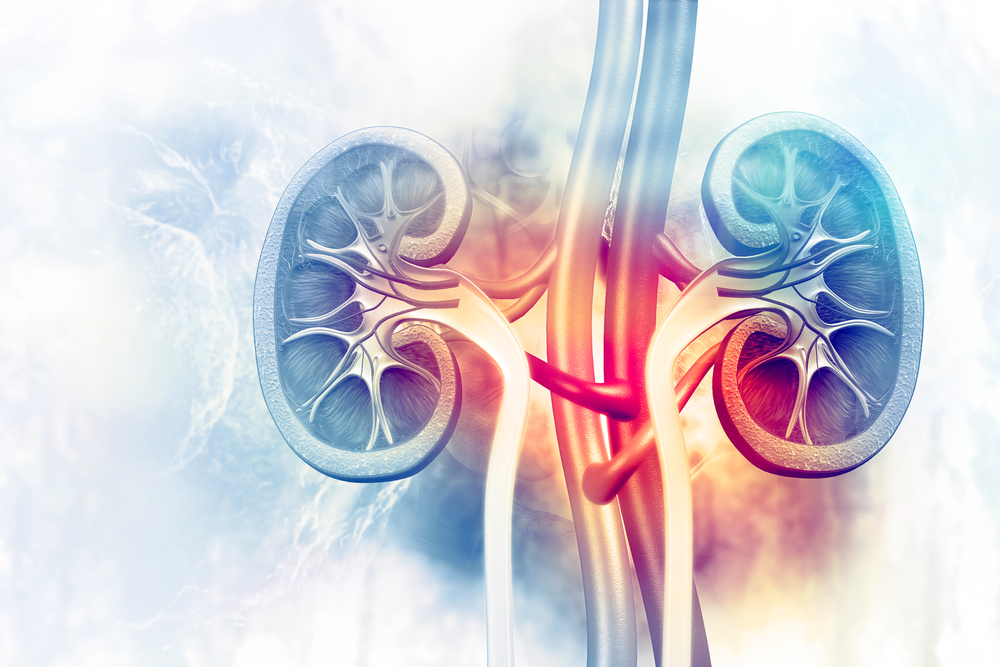Alport Syndrome - Causes, Diagnosis, and Treatment

Alport Syndrome Overview
Alport syndrome is a genetic illness that affects the functioning of the kidneys, eyes, and ears. It affects the collagen type IV in the body, which prevents these organs from functioning naturally. Also, it damages the glomeruli in the kidneys, which prevents the filtering of wastes from the blood. If not treated in time, the disease may cause damage to the kidneys at the subsequent stages. In medical terms, this stage is called ESRD (End Stage Renal Disease).
Those who are affected with Alport syndrome experience issues with hearing either in the final stage of their childhood or the beginning of their teenage. The disease also negatively impacts their power of visibility by altering the size of their eye lens or by causing myopia or cataract. Individuals may also develop flecks in their eyes. However, they do not cause complete blindness.
Compared to females, the illness affects more males, due to which they (men) develop severe complications. But it is frequent only in one out of 5,000-10,000 individuals.
Causes of Alport Syndrome
The primary cause of Alport syndrome is the mutation of the following genes:
- COL4A3
- COL4A4
- COL4A5
The mutation of these genes prevents the formation of type IV collagen, which leads to the formation of abnormal collagen in glomeruli. In the subsequent stages, it causes kidney disease and other complications.
Symptoms of Alport Syndrome
Alport syndrome can be identified through some of its symptoms. The majority of Alport syndrome symptoms also constitute complications. These include kidney disease, problems in hearing or total hearing loss, and visibility issues due to a problem in the eyes.
In addition, people suffering from the disease also display the following symptoms:
- Blood in urine which is also called haematuria in medical terms
- Urine in protein also known as proteinuria
- Hypertension
- Inflammation in the feet, eye region, and ankles
Alport Syndrome Diagnosis and Treatment
Symptoms and diagnosis of the disease go together. Upon suspecting that you have the disease, your doctor will first try to find out about the history of the disease in your family. Besides, they will also examine the symptoms of this disease in your body. Next, they will recommend the following tests to confirm that you have the disease:
- Skin or kidney biopsy
- Genetic test
The treatment of Alport syndrome depends on how quickly it is diagnosed. If detected early on, your doctor can administer an effective treatment for the disease. Its timely detection in early childhood can help prevent severe complications and kidney damage in early adulthood through proper treatment.
Apart from the aforementioned tests, your doctor may also conduct other tests to determine the current status of Alport syndrome in the body. The below-mentioned tests, despite not being diagnostic tests, will make it simple to help your healthcare professional understand how they should go ahead with the treatment of the disease:
- Urinalysis
- eGFR test
- Hearing test
- Eye and vision tests
Your doctor will begin the treatment of your Alport syndrome after going through the reports of your diagnostic test results. How they will treat you will solely depend on the complications in your body due to the disease. They will administer different treatments for kidney disease, hypertension, eye problems, and hearing loss. Here’s how they will go about it.
- Kidney Disease: Initially, your doctor will do their best to prevent the progression of kidney disease and slow it down through medications like angiotensin, diuretics, or water pills. Additionally, they will also advise you to take a low-protein diet and limit the intake of salt as much as you can. They may also advise you to see a dietician and take a healthy diet according to their advice. If your healthcare professional finds that you have reached end-stage renal disease, they will advise you to undergo dialysis or a kidney transplant.
- High Blood Pressure or Hypertension: Keeping blood pressure under control is possible through pills. These include calcium channel blockers, beta-blockers, and ACE inhibitors. Your doctor will prescribe these pills and advise you to take them at specified intervals of time. They will also advise you to monitor your blood pressure from time to time to prevent the possibility of heart disease.
- Eye Problems: An ophthalmologist is a professional who takes care of those who face vision problems due to Alport syndrome. Your doctor will refer you to them. If the disease alters the shape of your eye lens, an ophthalmologist will prescribe glasses, or if necessary, they may advise you to undergo cataract surgery. They may not prescribe any medication if they find only white flecks in our eyes.
- Hearing Loss: Hearing loss due to Alport syndrome leads to permanent damage, meaning that you will not be able to hear at all. But hearing aid can help you with it. Other than recommending a hearing aid, your healthcare professional may also recommend an active lifestyle so that you can maintain healthy body weight.




